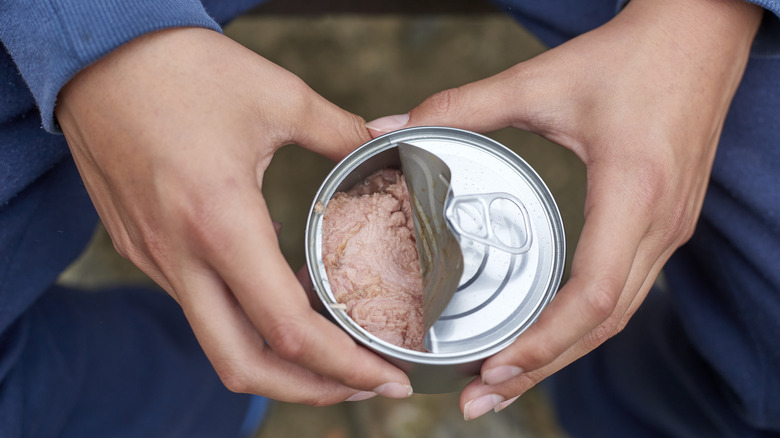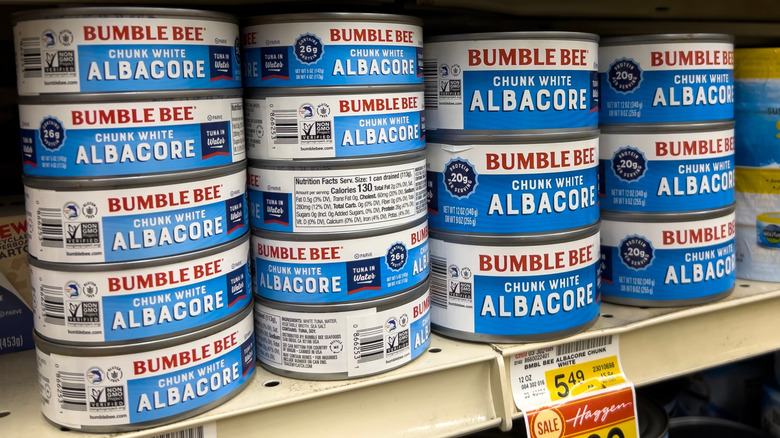One Of The Biggest Canned Tuna Recalls In US History Originated In Hawaii
From simple tuna melt recipes to quick and easy pasta, canned tuna is a versatile ingredient that deserves a permanent place in your pantry. Canned tuna can last five years or longer when unopened, making it appealing from a budget perspective, as you can stock up on the ingredient without spoilage concerns. However, that doesn't mean that these products are safeguarded against going bad in all instances, a fact made abundantly clear by a tuna recall in 1982.
Included in our list of the biggest tuna recalls to ever happen in the U.S., 40 million cans of tuna produced at a Bumble Bee plant (although other brands were involved) located in Honolulu, Hawaii, were recalled after several consumers found puncture marks in the steel cans. The damaged cans of tuna made their way to several states, including New York and Washington. Defects in cans can decrease the safety of canned goods, enabling air exposure that can foster the growth of dangerous bacteria. While the punctured cans led to spoilage, no illnesses were reported.
Faulty baskets were probably to blame for this massive recall
While food recalls are subject to rigorous investigation by food manufacturers as well as agencies like the FDA and USDA, it's not always possible to determine the cause of a defect. In the case of the 1982 canned tuna recall originating in Honolulu, FDA investigators were able to pinpoint a likely cause for the punctures found in cans of Bumble Bee tuna and other brands. It's believed that wire baskets used during the heating of the cans were faulty and may have created holes in the steel. Because these punctures were hidden by product labeling, consumers were unable to detect them and only discovered the issue upon opening the can.
At the time , investigators claimed that canned tuna had a lower chance of developing harmful bacteria like botulism because of the heat treatment that takes place during the canning process. However, a recent recall involving several brands of canned tuna with defective lids was enacted over concerns about potential Clostridium botulinum contamination, which can be life-threatening. That's why consumers are urged to discard all recalled products without opening to prevent food poisoning. Along with heeding the instructions that accompany recalls, consumers must also know the common signs of canned food spoilage. In addition to visible damage to the can itself, foul odors, discoloration, and bubbling also indicate bacterial growth.

